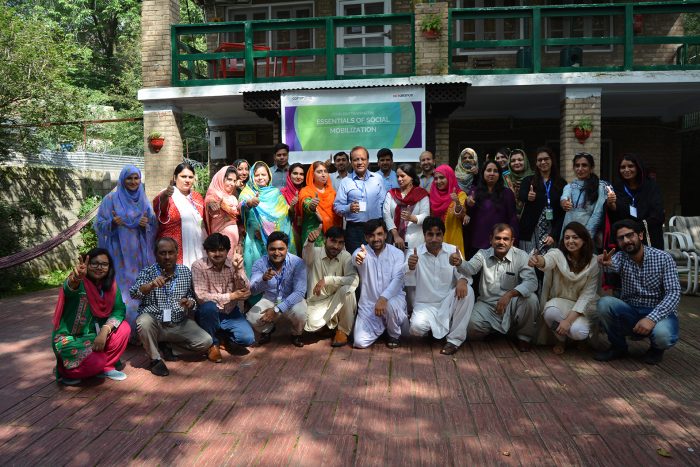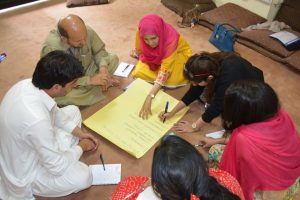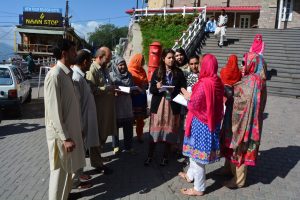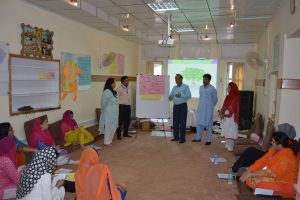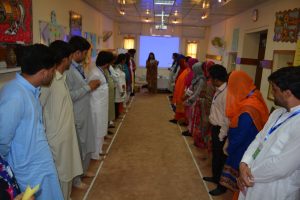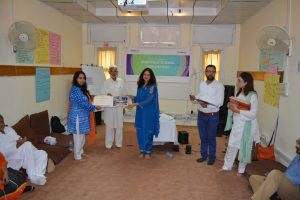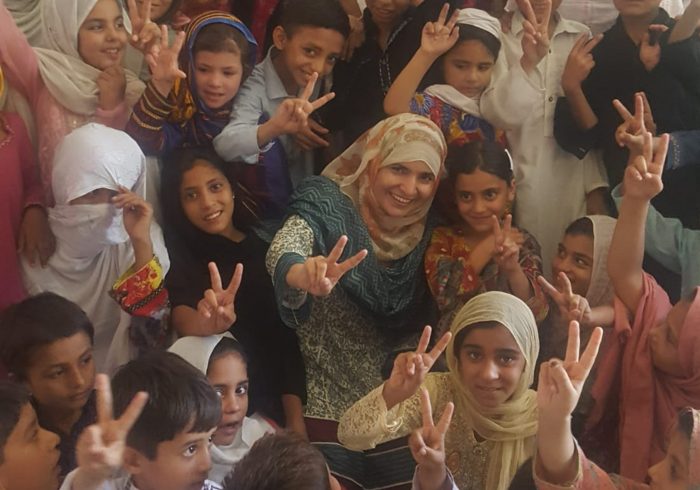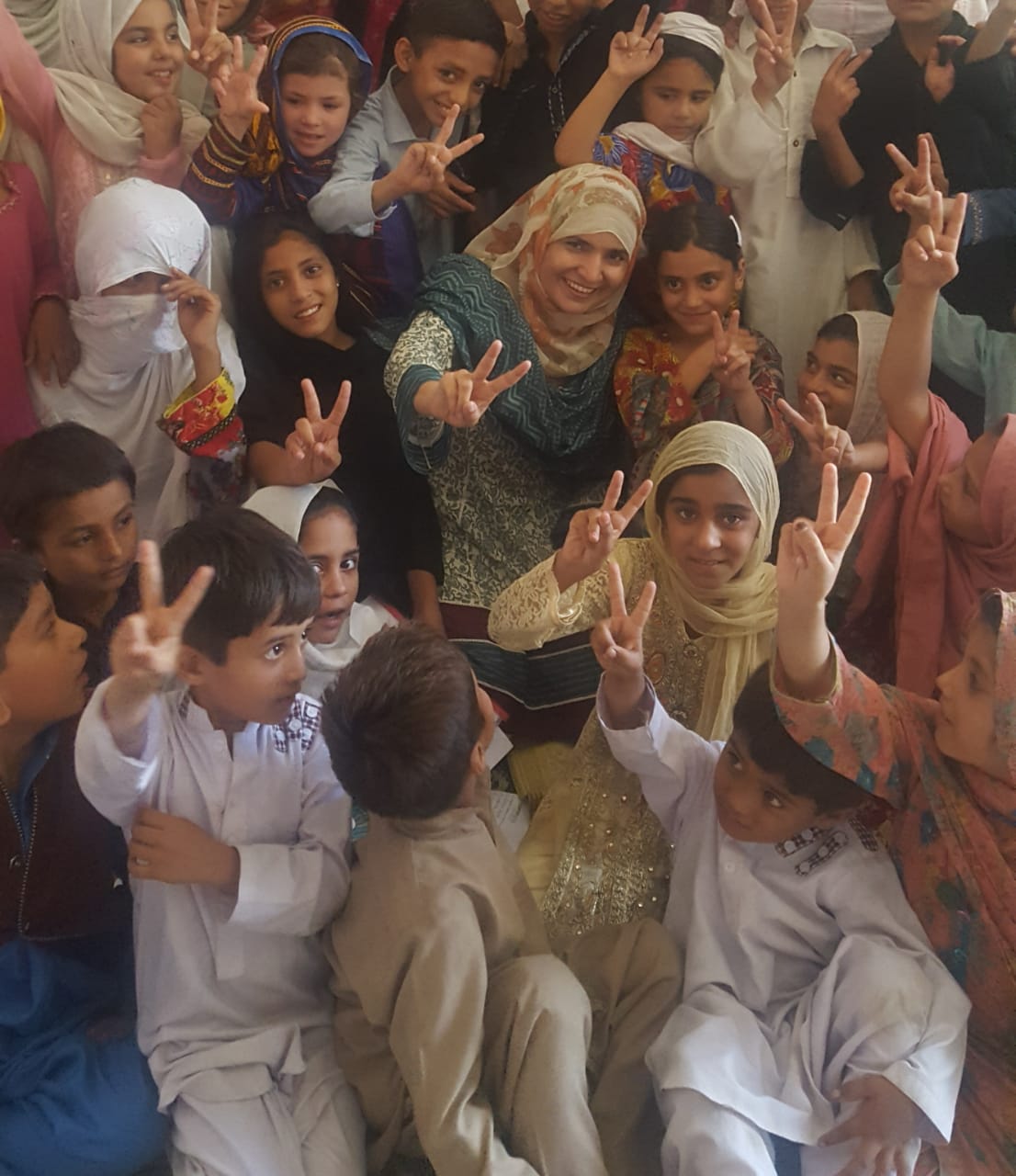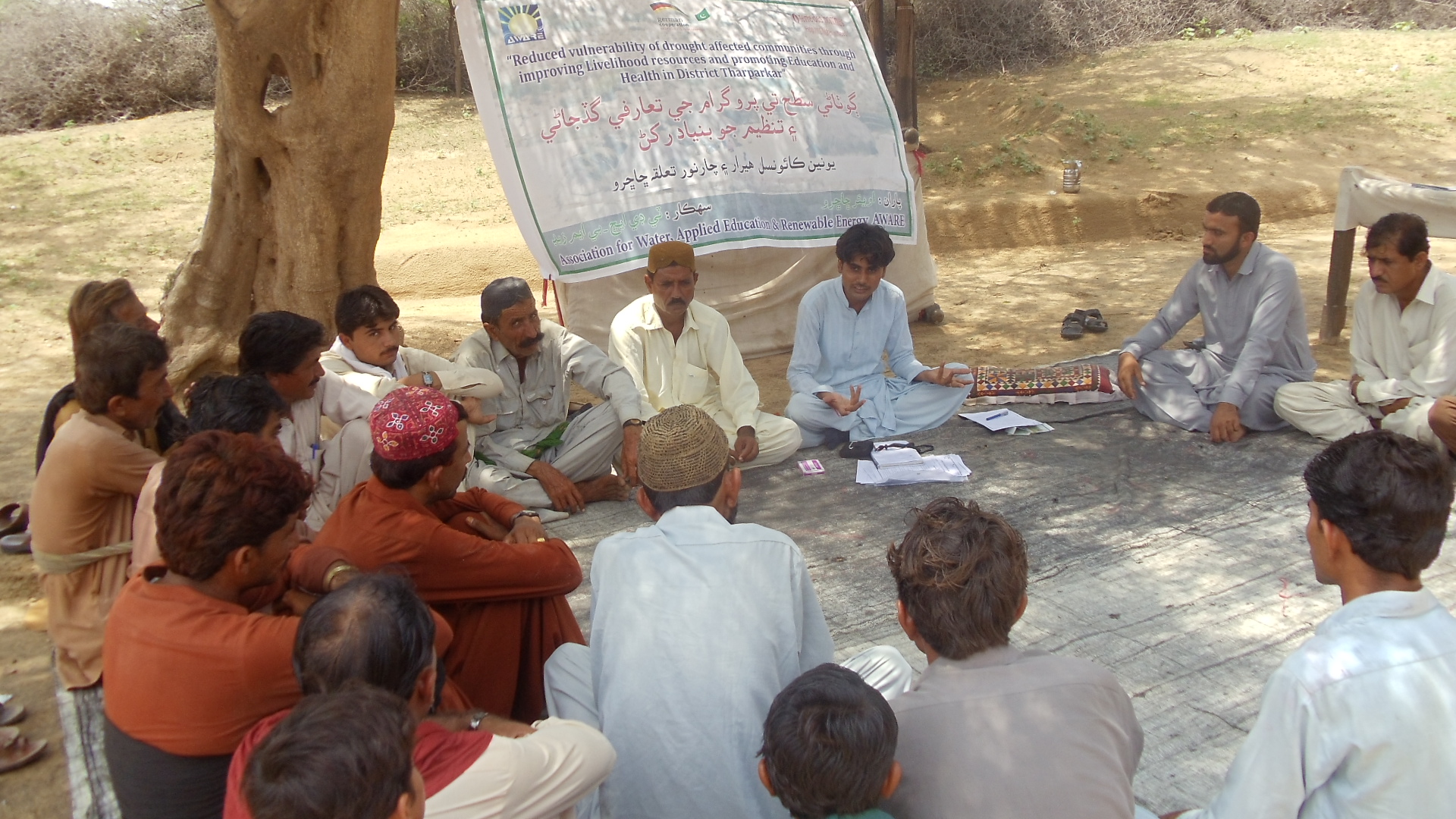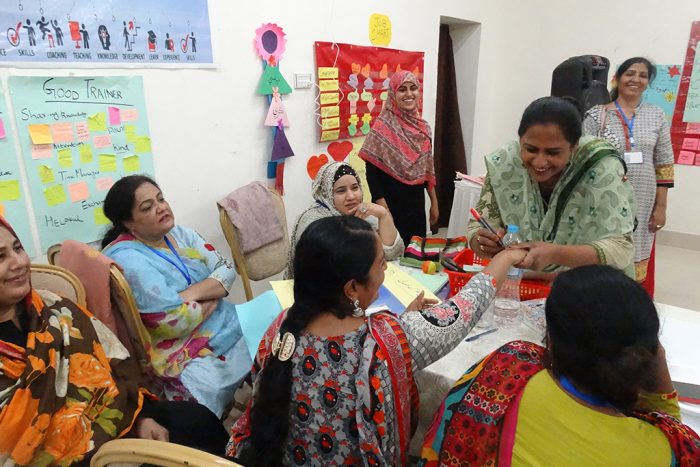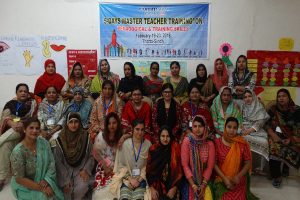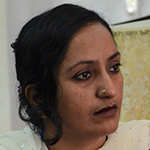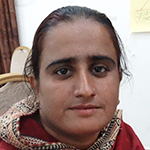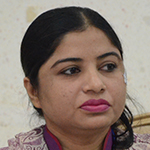What is social mobilization? Social mobilization is the primary step of community development for recovery from conflicts and disasters. It allows people to think and understand their situation and to organize and initiate action for their recovery with their own initiative and creativity[1]. Through mobilization, people can organize themselves to take action collectively by developing their own plan and strategy for recovery rather than being imposed from outside. It is essential to understand the basic idea of social mobilization and its uses before practically implementing it.
Advocating the mobilization and participation of communities at all levels of project interventions, Community World Service Asia recognizes that project and field staff in the humanitarian and development sector must be equipped with adequate skills and expertise on how to interact with communities and build relations of long-lasting trust with them. To further this cause, Community World Service Asia, held and conducted a four-day training on “Essentials of Social Mobilization” for local level organizations in Murree, Pakistan, in early August. Twenty-seven participants from ten organizations participated in this training.
The training introduced the various social mobilization skills required to motivate communities to bring about positive and sustainable changes in their society by building opinion on social issues. The opportunities and challenges faced by development workers were outlined and skills were enhanced on communication, conflict resolution, decision-making and problem solving to work more effectively with communities. The training elaborated on organizational policies to ensure inclusion of the marginalized segment of society especially to promote women participation in all processes of social mobilization. Participants developed skills to devise organizational strategies by engaging people to take ownership of their issues and resolve them by using local resources.
The prime focus of the training was to strengthen the capacity of local level organizations directly engaged in community mobilization and on-ground development initiatives. In the needs assessment, most of the participants showed interest in learning how to draft social mobilization strategies, using Participatory Rapid Assessment (PRA) tools, practicing effective communication skills, conflict resolution and how to identify local issues to advocate for social change. They also expressed an interest in enhancing their leadership skills to ensure effective social mobilization and women participation in the development process.
Once the participants for the training were finalized, they were included in all processes of the training design; from conceptualization to designing and activity planning. A training baseline survey was also conducted to learn about participating organizations’ policies, strategies and programs related to social mobilization and understand their organizational limitations and priorities.
Practicing the blended learning approach, the participants were divided in groups and given assignments. This exercise gave them the opportunity to learn by sharing experiences. A panel discussion was also held in which specialists selected from among the groups, with relevant experience, highlighted issues pertaining to lack of women empowerment. The purpose of this activity was to promote peer learning and sharing of contextualized best practices through open discussions, one-on-one talks and formal presentations among various organizations.
Key Learnings
The session on Participatory Rapid Assessment (PRA) allowed knowledge building on PRA tools including Focus Group Discussion, Key Informant Interview (KII), Social Mapping, Seasonal Calendar and transect walk. In a group activity, participants were divided in two teams. Both teams were assigned to work on different PRA tools. Team A worked on the transect walk, social mapping and KII, while team B’s task was to work on drafting a seasonal calendar by interviewing local people and conducting FGDs with a selected group of people. The teams performed actively and presented their work. The resource person identified some gaps and explained the tools for further clarity.
Another major need highlighted by the social mobilizers was to learn about the strategies and skills to overcome conflicts, communicate effectively in the community, enhance skills for effective conflict resolution, and trust building among communities.
Through adopting various interactive learning methodologies, participants identified the many challenges faced regarding power dynamics, balanced inclusion and participation while working in the community and learnt how to overcome those through conflict management, conflict resolution, effective communication strategies and different styles of leadership according to situations and people needs.
Muhammad Taj, with 25 years of extensive experience working with Sungi Development Foundation on social mobilization, shared his practical experiences and strategies to motivate people and communities to realize challenges and try to resolve their issues collaboratively with the support of local organizations. The training facilitator further encouraged participants to work on devising policies and strategies on social mobilization and provide guidelines to field workers on how to mobilize people to speak about their issues and work together with them on realizing their basic fundamental rights.
Steps ahead
Participants developed organizational action plans, chalking out the roadmap for implementing the learnings of the training. They plan to share their respective action plans with their organizations.
[1] UN Habitat





